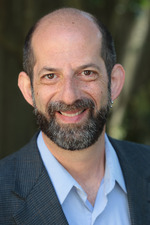Our desires can be challenging, but "challenging" is far from "bad."
 Sunday, December 11, 2011 at 05:49PM
Sunday, December 11, 2011 at 05:49PM Of course there are challenges in linking human love to love of God. Human love and desire energize us and inspire us. Conversely, though, they can completely knock us off track and make us do really stupid, if not hurtful, things.
This is a universal concern to which I want to apply some very Jewish wisdom.
The rabbis of the Talmud identified the double-edged blessing of eros as the yetzer hara the evil impulse that causes chaos in our lives, but "without the yetzer hara, a human being would never marry, beget children, build a house, or engage in trade" (Genesis Rabbah 9:7) I think they got it totally right. The same impulse propels us to achieve and to run amok.
How should be proceed in response? Once we acknowledge that danger, how do we protect ourselves as we move forward?
Traditionally, the risks of an erotic life are addressed morally – “How do we do only what is good?” “How do we avoid being bad?”
This, I am certain, is one big mistake, one very big mistake.
Those aren’t irrelevant questions, but asking those questions first sets us up for a lifetime supply of pain and oppression. Especially for Queer folk, members of erotic minorities in a straight-dominated world, venturing out into the world in perpetual fear of being bad (everybody go “Wooooo!”) stunts our spiritual growth and injures us in ways that make right relationship with others and with God even more of a challenge than they would be anyway. None of this part of life is easy; haunting ourselves with a fear of being bad makes everything harder unnecessarily.
I believe the challenge of the yetzer hara -- the challenge of using the power of desire productively and constructively -- should be met technically, not morally. Don’t start by asking Is this impulse good or bad? Start by responding to the impulse technically.
And that technique, please stay tuned, will be the focus of the next blog posting.
 Queer Spiritual Counseling
Queer Spiritual Counseling
"It is all a mystery. So much a mystery. And we have no choice but to bear it. And the whole difference lies in the how."
The Marschallin in Der Rosenkavalier by Hugo von Hofmannstahl

Reader Comments (1)
I enjoyed your blog. It’s easy to read, the content is good, and you’re an educated writer unlike most of the blogs I come across when searching on this topic. I will check back in the future and see if you have more articles. Thanks for posting this, I appreciate the information and the effort you put into your site.